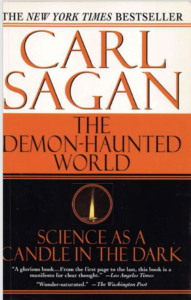The Consequences of Not Belonging to any Political Tribe
What is it like to not feel part of any political tribe? Mostly, it is to be dismayed to hear lies from the right and then lies of the left. It is to have a seat near the net of the tennis court, looking to the left, then the right, over and over, as lies are zinged back and forth. The party in power now, the Democrats, are certainly doing their part, whether it be immigration, COVID, Russia-Trump, abolishing the police will keep cities safer. And now there is the Democrat claim about Biden's economic package:
They are insisting that their plans, which are still in flux but amount to a call for some $4 trillion in spending over two bills, have no real costs at all—or that the costs should not be factored in, because they are "unfair and absurd."
As if $4 trillion will not risk massive inflation. As if $4 trillion will be completely paid for.
I'm not taking a position on whether parts of these packages make sense for the U.S. My concern is that the risks of these packages are being actively suppressed. I have very little respect for Joe Manchin, but I think he's correct when he claims that the current proposal amounts to "fiscal insanity." We are not having any meaningful national conversation about what is really in these bills and the extent of economic risk of committing $3.5 trillion to those things. This, from the remorseless political party that threw the working class overboard decades ago.
This is simply the most recent example of a system that is completely broken with no hope of repair. It's a system where big corrupt campaign money and ideology drive the decisions, where inconvenient truths are ignored and suppressed and where most voters line up in ignorance to cheer their respective teams.
In four years, we might see the Republicans taken over, with their own brand of fiscal and ideological insanity. I truly see no end in sight.
This is the sort of thing that led George Carlin to indicate that he no longer had "a stake in the outcome." I wish I could claim that everything is going well for our country, but I can't.

 programming, credulous presentations on pseudoscience and superstition, but especially a kind of celebration of ignorance. As I write, the number-one videocassette rental in America is the movie Dumb and Dumber. “Beavis and Butthead” remain popular (and influential) with young TV viewers. The plain lesson is that study and learning—not just of science, but of anything—are avoidable, even undesirable.
programming, credulous presentations on pseudoscience and superstition, but especially a kind of celebration of ignorance. As I write, the number-one videocassette rental in America is the movie Dumb and Dumber. “Beavis and Butthead” remain popular (and influential) with young TV viewers. The plain lesson is that study and learning—not just of science, but of anything—are avoidable, even undesirable.